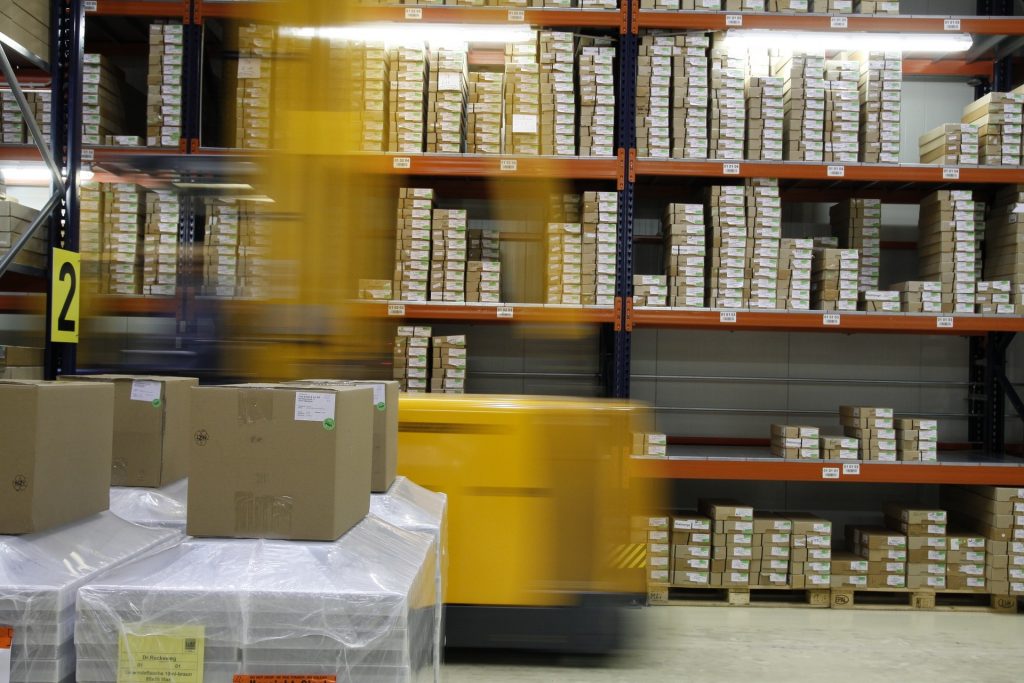Logistics market update – key trends and drivers (or lack of!) in the sector

In recent years, it has been well documented that e-commerce fulfilment has become a significant driver for growth in the logistics sector, as SME retailers demand quick, efficient, and reliable shipping solutions to stay competitive with their larger and more established competitors. Last year non-food retail e-commerce in the UK saw a considerable year-over-year growth of 46.5% and this is expected to continue with growth of 20.5% expected in 2021 (source: eMarketer).
Growth in the sector has been driven by consumer behaviour favouring online shopping as people have become more accustomed to new ways of ordering retail goods – a trend that was accelerated during the various lockdowns imposed over the last 18 months. However, as the UK progresses into the “new normal” following the ease of lockdown measures, the consequential effects of both the pandemic and Brexit are impacting the 3PL landscape for both market participants, their customers and their suppliers.
Technology
Retailer’s lack of visibility into the far reaches of their supply chains has been highlighted by the unpredictability of fluctuating market demand. As a result, businesses have worked to shorten their supply chains and have demanded comprehensive logistics solutions from companies that can provide visibility and mitigate anticipated disruptions. Technological change in the industry has been accelerated to keep up with this demand accelerated by the pandemic – induced delays and shortages necessitating a more robust supply chain management.
With the market landscape constantly changing, agile logistic companies that have integrated advanced data analytics and AI into their operations will be better positioned to win business and market share by giving their clients the ability to adapt through data-driven decision making. As a result, businesses with new tech-enabled solutions are likely to become more attractive to acquirers for the increased solutions which they provide; and wider service offering which has been one of the main drivers of M&A activity and fund raising in 2021.
Shipping goods into the UK
The US$9.6 billion in trade lost during a brief six-day closure of the Suez Canal exemplifies the challenges faced by a heavy reliance on container shipping. As trade resumed, demand grew faster than expected, outstripping supply and raising costs globally. This was propagated by the shift of shopping patterns triggered by the pandemic which resulted in increased import demand for manufactured consumer goods (mainly transported via shipping containers). The UK has been hit especially hard by rising costs and shortage of containers, experiencing price rises between 500-800% for importing goods from China.
Consequently, retailers looking to increase stock held with their UK-based fulfilment specialists have suffered greatly from an increase in the cost of landing goods as well as much longer lead times. Businesses that are unable to absorb these price increases are ultimately being forced to either stop importing or pass the cost on to the end customers. This has impacted the volume of goods coming into logistics providers and therefore impacted the volume-based revenues for those providers.
Consequently, technology start-ups looking to more effectively manage the supply chain, track goods coming into and out of the UK and allow for container sharing are becoming attractive to VC’s looking to invest in the sector. For example, Forto, a digital freight forwarder that experienced a boom during the pandemic, raised £40 million in funding at the end of 2020 and Zencargo raised £30 million in May this year.
Storage
Supply chain disruption has also resulted in certain retailers ordering more stock to mitigate the risk of not fulfilling orders if there is further disruption to the supply chain. This has increased the storage requirements in the fulfilment centres designed to process goods and not store them long term; consequently, inflicting pressure on current warehousing demand, impacting rental costs. Rental space saw a record quarterly rental take-up of more than 15 million square feet in Q2 2021, driving rent inflation as tenants try to avoid the uncertainty surrounding deliveries (Source: CBRE UK warehousing review).
Again, well-funded tech-enabled businesses are providing solutions, with logistics and supply chain consultancy Bis Henderson receiving a significant investment from TPA Capital to support the company’s growth plans. Their Bis Space division supports businesses in the sourcing and provision of warehousing space in the increasingly tight UK warehousing market. This type of service also allows growing logistics businesses to lease and invest in sites much larger than their current client base requires on the basis that they can use these platforms to generate income from unused space whilst their business grows.
Driver crisis
The UK labour mismatch has resulted in a record high of 1.2 million vacancies, as evidenced by recent lines at gas stations caused by a shortage of lorry drivers to transport the fuel. The current shortage of HGV drivers has been exacerbated by the Brexit-related points-based immigration system, which has been compounded by the increased demand for road deliveries in the run-up to Christmas. Despite the attempt by the government’s efforts to address the problem by issuing 10,500 temporary visas to lorry drivers and poultry workers, the problem is likely to persist as a dearth of EU labour is not the only cause; other factors such as COVID, unattractive pay and working conditions are all contributing.
This is putting pressure on the last mile delivery providers in the e-commerce supply chain with carriers increasing costs and, in some instances, drivers not being able to make collections (potentially impacting SLA agreements with the fulfilment providers customers). This has created opportunities for start-ups such as Hived, which uses bicycles to complete the “final stretch” of deliveries in cities whilst also providing a zero-emission service. Hived has already raised $2.4 million, joining other start-ups in the space that have received funding, such as Scandinavian Budbee, which has raised $52 million to date. As the driver crisis continues and pressure to decarbonize the logistics industry grows, investment in this sector is likely to increase into 2022.
EU red tape
Brexit has brought in regulatory changes for cross border trading that have massively impacted the logistics industry, such as the need for tariff codes and EORI numbers to move goods between the EU and UK has made it more costly and challenging for retailers to trade across borders. In response, a number of UK-based e-commerce fulfilment providers have either partnered with EU based businesses with similar challenges getting good into the UK or invested in their own sites.
This is a nascent but growing area and is likely to be an area attracting funding from venture capital going into 2022. Further, with US and EU providers looking to find a logistics solution within the UK to avoid cross border tariffs it makes UK fulfilment providers and attractive target for cross-border M&A.
Conclusion
Whilst a number of the challenges facing the industry are being addressed by well-funded market entrants, others will be addressed through scale; this continues to drive market consolidation in the logistics sector. Wincanton’s recent acquisition of Cygnia and Whistl’s acquisition of Clientbase (a deal advised on by HMT) are both examples of larger logistics providers acquiring entities with an e-commerce fulfilment capability.
We believe this M&A trend will continue into 2022 and we would be delighted to talk to shareholders in the sector currently contemplating a sale as well as innovative start ups looking to seek growth capital for expansion.

Ricky Lane
Director
Why HMT
Latest News



